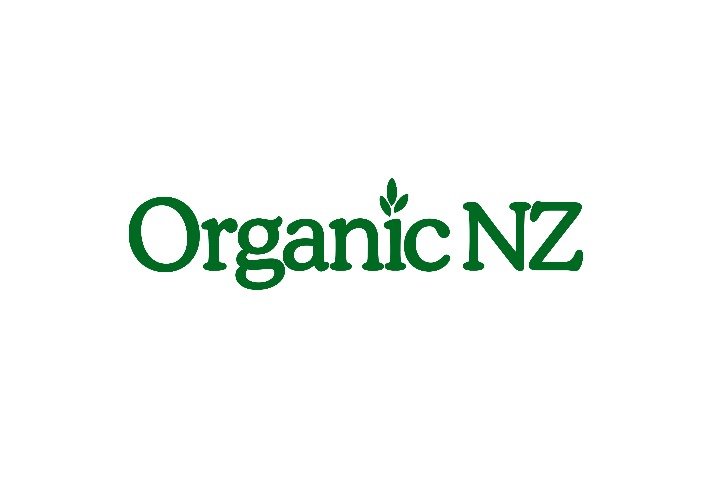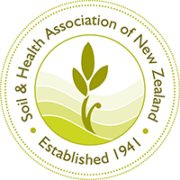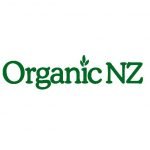The Natural Health Products Bill is here – have your say!
The Natural Health Products Bill is back in Parliament and this time it is a different story altogether.
In 2007 New Zealanders flexed their muscles and influenced their political representatives not to pass legislation for a joint Australia New Zealand Therapeutic Regulatory Authority (ANZTPA).
The then Labour Health Minister Annette King, in tandem with Medsafe (the pharmaceutical medicines regulator), tried to push through a regulatory system for natural health products that would have been under a heavy handed Australian-led pharmaceutical model and administered in Canberra with the loss of New Zealand sovereignty. This was against the advice of the cross-party Health Select Committee and against thousands of submissions from consumers, the natural health industry and professional bodies. It would most certainly have wiped out our small but thriving traditional herbal manufactures as experienced in Australia, and many tried and trusted natural health products used by generations of Kiwis would have been regulated out of existence.
In the end, there was enough discontent that the legislation lacked the numbers to be passed.
Looking back it is astounding how the Ministry of Health could spend millions of precious health dollars developing the binational regulatory system as set out in the Therapeutic Products and Medicines Bill 2006, without first working on a comprehensive New Zealand Medicines Strategy that included the wishes of more than half of New Zealanders to incorporate natural healthcare strategies. (For an overview of figures of prevalence of natural health care in New Zealand refer to my article ‘Children’s health: proven natural treatment strategies’, Organic NZ May/June 2011, pp. 28–29.) A thorough strategy that included professions outside the dominant medical and pharmaceutical industry would also have illuminated the contributions and health dollar savings that modalities like herbal medicine contribute to achieving the goals of better health standards in New Zealand as set out in the New Zealand Health Strategy 2000.
Integrating natural healthcare into the mainstream system
Subsequently, the Greens, and in particular Sue Kedgley who was instrumental in achieving a defeat of the proposed ANZTPA, secured funding for a small unit within the Ministry of Health to investigate how natural healthcare could be integrated into mainstream health system. The post of Chief Advisor Integrative Care was established in 2007, and in October 2008 the Minister of Health agreed to the formulation of a strategy to integrate complementary and alternative medicine (CAM) into New Zealand’s health system. One of the key areas to address was the gaps in the current system, such as early detection of and intervention in health issues, strategies to correct underlying physiological imbalances leading to suboptimal health, and support of chronic illnesses with effective medicines and treatments that have a low side-effect profile.
Integration on the back burner
Alas, with the change of government in November 2008 the National Party virtually suspended this work, and three years on such a comprehensive health strategy is still lacking. It may yet be a long battle ahead for official acknowledgement of the longstanding clinical and increasingly evidence-based value of natural healthcare in New Zealand; an acknowledgment that should finally entitle it be included into an overall healthcare strategy, make it eligible for product and service subsidies, a share in health research funds and professional representation in our schools of medicine as long practiced overseas. In the meantime, the new Natural Health Products Bill is a development in right direction.
What is the new bill all about?
The Natural Health Products Bill is one of the shared policy initiatives agreed to in 2009 by the National and Green parties in a memorandum of understanding, and demonstrates the value of smaller parties like the Greens in having input into policy and legislative process. The proposed scheme is a vast improvement on the heavy-handed trans-Tasman regulator. The bill was introduced into Parliament on 7 September 2011 and referred to the Health Select Committee, which is now calling for your submissions on it.
The new bill recognises that natural health products are generally low risk. Its key objectives are a New Zealand-based scheme that is cost-effective and gives New Zealanders confidence that the natural health products are true to label and can provide the health benefits claimed for them. Unlike the previous bill, this proposed legislation excludes natural health products and rongoā from the new trans-Tasman agency to regulate medicines, medical devices, and new medical interventions, and proposes instead a stand-alone New Zealand regulatory scheme for natural health products that are sold in New Zealand. The regulator is to sit within the Ministry of Health, but separate from Medsafe.
The principles to be included in the bill are that:
a) The level of regulatory control applied to natural health products should be commensurate with the risks associated with their use, e.g. pharmaceutical-level controls are considered unnecessarily onerous;
b) Consumers should be supported to make informed choices about their use of natural health products, e.g. standards for claims and labelling requirements will support the provision of accurate information.
Health claims will be allowed on labels
The bill envisages accepting assessments and approvals by trusted overseas regulators who have processes and standards at least as robust as those in New Zealand. Traditional claims and claims recognised by trusted overseas regulators will be allowed where appropriate. The bill will therefore for the first time allow industry to make legitimate claims about the health benefits of natural health products to those who use them. This will finally bring clarity for consumers who so far were left in the dark about the true scope of a product, as such a declaration would have breached the current Medicines Act. However, approval under the Medicines Act for products making high levels of claim will continue to be required.
Ingredients lists
The bill requires the regulator to develop and maintain two lists of ingredients:
- A list of ingredients prohibited for use in natural health products;
- An open-ended list of ingredients approved by trusted overseas regulators, recognised in traditional medicine or pharmacopoeia, or assessed by the New Zealand regulator as suitable for use in natural health products.
The departure of the so-called ‘permitted’ or ‘white’ list, as exists in Australia, is a major victory for users of natural healthcare products. In Australia, if an ingredient is not on the list, the product becomes automatically illegal. This could have negatively affected our native herbs or traditional herbs from other countries that have been used for millennia.
Send in your submissions
The history of the Natural Health Products Bill is testimony as to how important submissions are. The proposed bill should be welcomed but only on the following conditions:
- That the principles of the bill in regards to regulatory control, consumer information and the low-cost nature of the scheme are met.
- That the new stand-alone unit is filled with health professionals having specfic training in natural health care.
- That the Crown bears the cost of the full set-up of the scheme and at least half of the ongoing costs. So far it is proposed that the Crown will pass on set-up and most of the ongoing costs to industry. As natural health care products – unlike drugs – are not subsidised by the government, the manufacturer and therefore the end consumer would bear the brunt of the new fees. For some people it would become too expensive to purchase unsubsidised plant-based medicines and supplements. The covering of costs by the Crown would bring some balance into the anomaly of government funding of pharmaceuticals but not natural health care products. Over 50% of adults and 70% of New Zealand children are using natural health products in line with their right under the Codes of Rights of the Health and Disability Commissioner Act.
- That the development of New Zealand-specific code for the manufacture of natural health products will be truly risk-based along the lines of currently existing Good Manufacturing Practice (GMP) for foods manufacturing, and will not be an expensive and onerous scheme that will jeopardise smaller manufactures due to additional expensive regulatory costs.
- That supplements will be allowed to contain adequate therapeutic levels of active constituents in order to work and without falling under the Medicines Act.
- That the bill is amended to recognise the Treaty and ensure dedicated Māori representation within the new regulatory body.
- That the proposed stand-alone New Zealand regulatory scheme for natural health products will not be incorporated at a later stage into a joint New Zealand–Australia regulatory regime for medicines.
Ideally, all of this is just the first step, and in future plant-based medicines and supplements should be included as part of the national New Zealand Medicines Strategy. If natural products become eligible for subsidy once registered under the new regime, this will create a more level playing field, more choice and better health for New Zealanders.
Have your say
Submissions are due by 24 February 2012. Send to the Health Select Committee, Parliament Buildings, Wellington, phone 04 817 9687.
You can read the bill at www.legislation.govt.nz/bill/government/2011/0324/latest/versions.aspx




